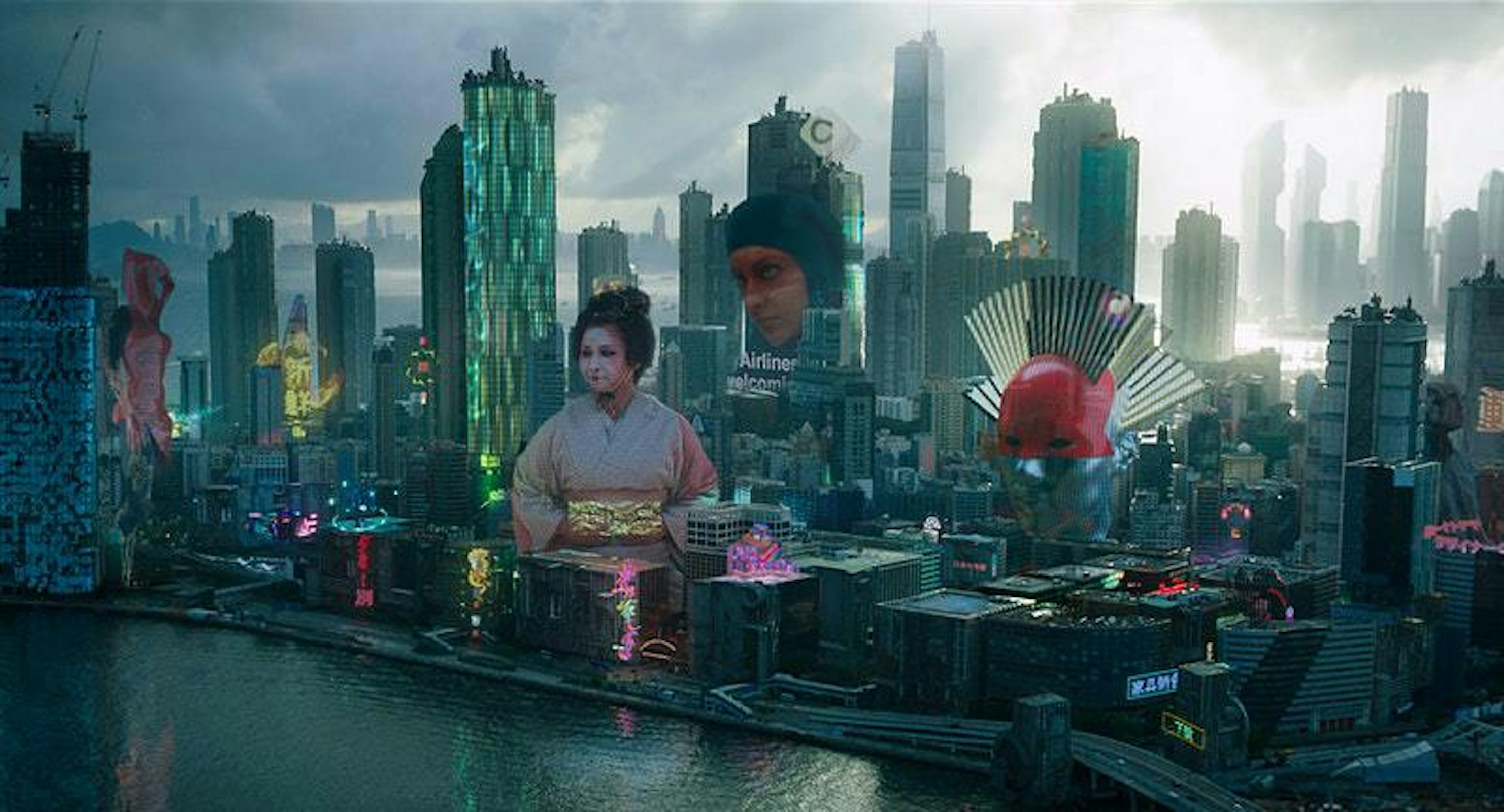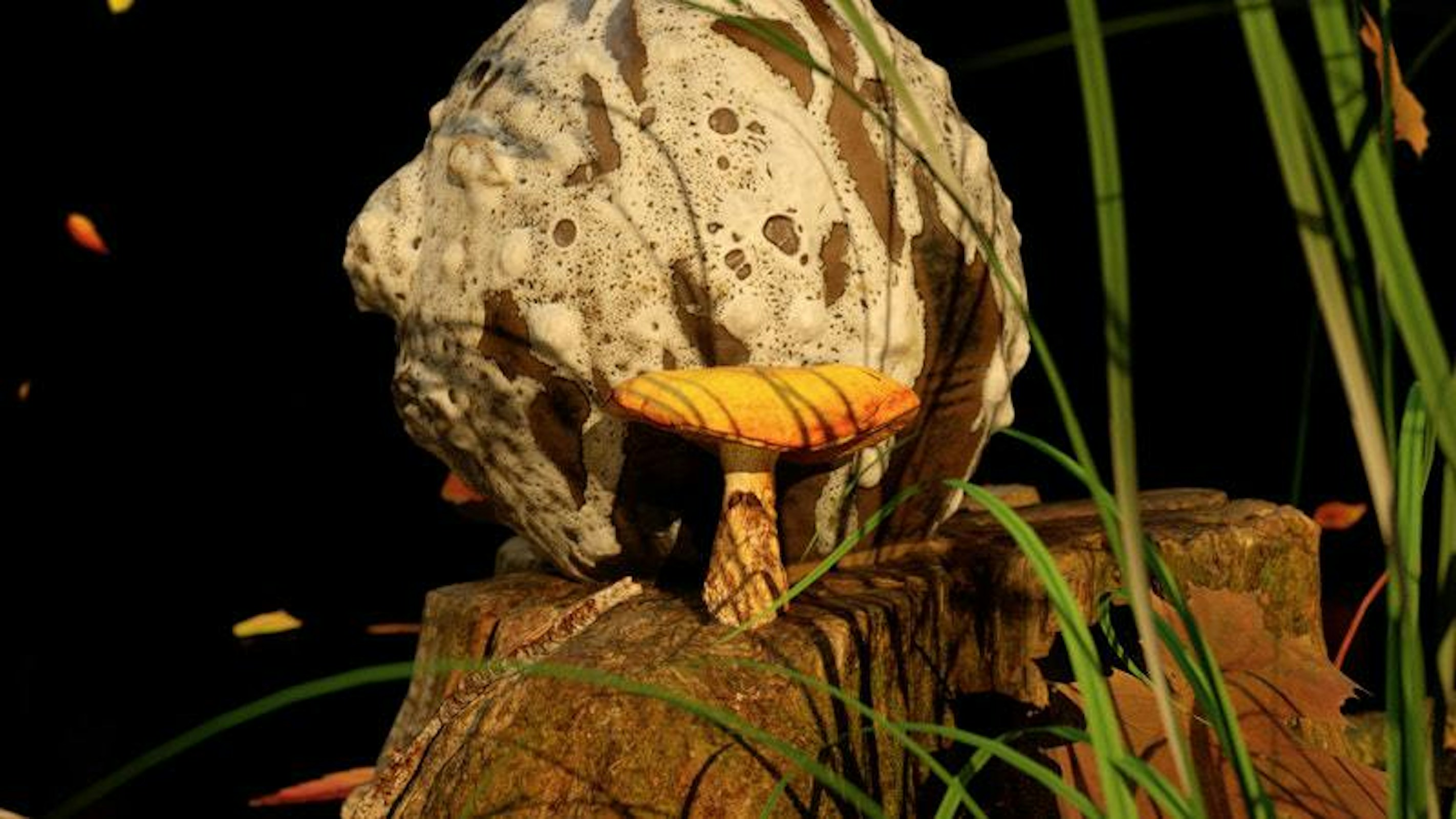Mental fireworks: talking ideas and digital DIY with Mainframe’s Ian Waters
They say that a bad workman blames his tools. But in Ian Waters’ case, he just decided to build himself some new ones. Initially hired as an animator by the Manchester branch of motion-graphics studio Mainframe, a growing frustration with the limitations of the software he was using drove him to develop MASH – a plugin that now comes part and parcel with every version of computer program Maya. As head of development, he now spends his days continuing to develop the software, inspired and informed by the way others use the technology – the list of which has grown to include some top secret Hollywood studios. Here, he tells us what it takes to make ‘mental fireworks’ and why you should keep talking.

Ian Waters
Job Title
Head of Development, Mainframe (2008–present)
Based
Manchester
Previous Employment
Animator, Watson Associates (2005–2008)
Education
BA Interaction Design, University of Lincoln (2002–2005)
Website
Day-to-Day
How would you describe your job?
I design and develop animation software for use in the TV and film industries. I used to be an animator, but about four years ago I started spending more time developing tools for the team at Mainframe. Two years ago it became my full-time position.
What does an average working day look like?
I used to live about a 30-second walk away from our office in Ancoats, and I now live 36 miles away in Sheffield! So I’m up early for the 1.5-hour journey. Then it’s admin for the first part of the day; the people I work with are spread all over the globe so there’s usually quite a lot of activity overnight that needs responding to. Coffee really helps with this task. Then I catch up with the team and get on with work. The day usually involves a meeting or two, some scheduled, most impromptu, and the working day ends around six. I thankfully have a very good life-work balance. Mainframe is a great place to work; it’s quite uncommon in our industry to work normal hours, but the environment we have here is very healthy.
“No one really knows what they’re doing when they start out on something new; you learn along the way. What’s important is that you have that capacity to grow.”
How did you land your current job?
I used to work as a 3D illustrator, and was hired at Mainframe as an animator. But I gradually grew frustrated at the state of the tools we were using, so I started making my own for use in the studio. This culminated in one of the tools I invented being bought by Autodesk a couple of years ago; they’ve kept us on, developing the tool (and other newer creations we’ve made for them). So that’s my day job.
Where does the majority of your work take place?
In the studio, but I have been known to work on the train home or into work; I like to tinker.
How collaborative is your role?
Exceptionally collaborative. Locally I work very closely with Martin, the other developer here. Mainframe’s managing director Chris and the whole studio also have input into the work I do; they use the software we make, so it directly affects their work day. More broadly speaking, I work with a team of around six based in Toronto, Canada, who are our support team and keep us on track. This team includes managers, quality assurance, a programmer, a documentation specialist and a designer.
What are the most and least enjoyable aspects of your job?
The most enjoyable is talking about problems. Ideas come from talking, and more often than not a good idea will come from trying to explain a problem, or from listening to someone else explain a problem. I always find that rewarding. I also love seeing what people do with our animation software and hearing how they use it. This usually leads to mental fireworks going off, as we think of how we can improve things for users. But the best bit by far is the software being used in blockbuster films (which sadly I can’t name due to NDAs!) The thing I least enjoy is digging into a project that someone else has done to fix a minor detail. No one enjoys that kind of work!
What skills are essential to your job?
Aside from technical skills, an ability to not take criticisms personally will go a long way, especially in maintaining some form of sanity.
Do you run any side projects alongside your job?
We’re constantly running self-initiated projects, experiments and the like. We have more ideas than we have time to make. I think it’s really healthy for everyone to have side projects, even if they don’t get finished. It’s good to keep trying and learning, and quite frequently elements from side projects end up being used in a paid project.
What tools do you use most for your work?
Slack; Sublime Text, Xcode, CLion, Qt Creator, Kaleidoscope, GitLab, Git; MacPro (with two huge monitors); MacBook Pro; iPhone and a Fuji X100-T (the most fun camera known to man.)



How I Got Here
What did you want to be growing up?
A ship’s captain. My grandfather was a sailmaker and royal marine – I’ve always loved being on water and his endless stories were great to grow up with. I even got onto the bridge of a cross-channel ferry when I was eight.
How (if at all) is the subject you studied useful to your current role?
At university I made educational games for kids. I did a lot of research into how children use computers, and what they would and wouldn’t do. All of this research has been made completely obsolete by touch screens, but a lot of the things I learnt about how long it takes someone to work out a UI and how people feel their way around them is still useful today.
What were your first jobs?
My first jobs accidentally led me to working as a chef, which is ever so slightly different to the career track I’m on now. I was a pot wash then ended up taking over the kitchen, and worked my way up from there. Thankfully I’ve never had much trouble finding work. In my last job I went in to do two weeks of freelance illustration work and left three years later.
“The former chairman of a FTSE-100 company told me that no one really knows what they’re doing when they start on something new; you learn along the way.”


What in particular helped you the most at the start of your career?
My current boss Chris has done quite a lot for my personal development. I came here as an animator, but after about 3 years I started to push in a different direction and he let it happen. I basically left my day job and made myself a new role inside the company. Thankfully this role made money, and now it’s a whole new side to the business.
Was there a particular project you worked on that helped your development?
The first contracting job I worked on was like strapping a rocket to my personal development. We took on a project that I wasn’t really qualified for, but that everyone (client included) was enthusiastic about. I was a bit apprehensive at first, until the former chairman of a FTSE-100 company mentioned to me that no one really knows what they’re doing when they start out on something new; you learn along the way. What’s important is that you have that capacity to grow. And the project went really well.
“Creative skills don’t really change – that stays with you forever. Technical skills change all the time. You never stop learning.”
What skills have you learnt along the way?
Creative skills don’t really change – once you learn them, you develop an eye for things and that stays with you forever. Technical skills change all the time, depending on what software the company you work for uses, or even what app the current project requires you to learn. You never stop learning.
What’s been your biggest challenge?
There are new challenges every day due to the rich and varied work we get. We’re constantly educating ourselves out of holes. My biggest challenge has been getting into the highly technical nitty gritty of things. Quite often you just want to do the fun creative stuff, but at some point in the future someone else might be helping you with a project, so keeping it clean, efficient and tidy is a constant bane. It will also help you when you come back to it in the future, but I confess I’ve still not managed to crack this completely.
Is your job what you thought it would be?
I made my own role here, it’s exactly what I wanted it to be.
Thinking Ahead
What would you like to do next?
I would like to take everything I’ve learnt over the past few years and put it to excellent use on one of the many in-house project ideas we have, but never really get round to doing.
Could you do this job forever?
At Mainframe I’ve been given a great deal of autonomy. My role has changed so frequently over the past few years and has involved multiple trips around the UK, to Canada and the US to give talks, visit studios and plan the future. If this keeps up, I could absolutely do this job forever.
What do you feel is the natural career progression for someone in your current position?
You can carry on becoming more of an expert in what you do, or you can go into project or product management.
Words of Wisdom
What advice would you give to a young creative wanting to become a developer?
People don’t hire CVs, they invest in people. Enthusiasm is key; we’re far more likely to hire someone less qualified but more enthusiastic than someone who on paper is perfect, but for whom the role is just a job.
This article is part of a studio feature on Mainframe.
Interview by Marianne Hanoun
Photography by Tim Sinclair
Mention Mainframe
Mention Ian Waters
Mention Jack Brown
Mention Martin Vejdarski



